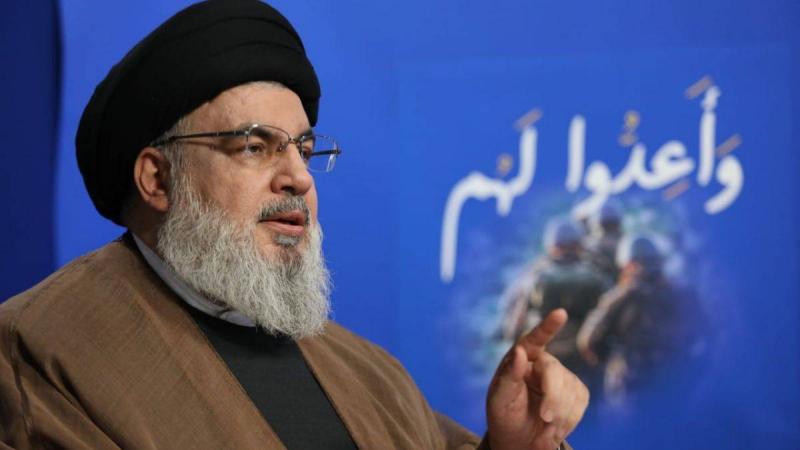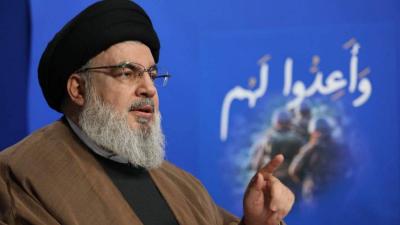The initial and quick impression one derives from observing Mr. Hassan Nasrallah's recent speech, delivered on the occasion of the week that has passed since the assassination of martyr Mr. Fouad Shukr, the commander of Hezbollah's military wing, is that the retaliatory response, whether from the party or Iran, will not come swiftly, nor within hours or days, as is the common perception in most circles of the resistance axis. It might have been agreed to postpone it for days, weeks, or even months, based on political and field assessments of the resistance axis.
Indeed, Mr. Nasrallah confirmed in his speech that "Hezbollah's response is coming" and that Iran is obligated to respond. However, there are several points that directly or indirectly indicate a delay:
1. Mr. Nasrallah did not specify a timeline for this response, which is understandable; the hour of zero, i.e., the start of war, is one of the great military secrets that cannot—and should not—be announced in a public speech. However, the tone of the speech leaned more towards calming rather than escalating, compared to the last three speeches of his Eminence.
2. Mr. Nasrallah's assertion that the ability and determination to retaliate exist, but that this response should be characterized by courage rather than reaction.
3. His reminder that the state of waiting is part of the battle just as it is part of the punishment, and that "Israel" is now in a precarious position from the northernmost point, passing through the middle, to the south.
4. Mr. Nasrallah's call for the resistance in Gaza and the West Bank to "exercise patience and steadfastness," and his urging for supporting fronts to continue working at the same pace.
5. Wars are a deception, and thus the question arises: Did Mr. Nasrallah intend through this speech, with its calming tone, to mislead the occupying state and the United States, its main supporter, and surprise the enemy later? This is merely a possibility we present in the spirit of analytical objectivity, but at the same time, we do not hide the fact that some supporters and affiliates of the resistance axis were in a state of shock, as they rightfully expected a swift retaliatory response to the assassinations of Haniyeh and Shukr as fervently as possible, especially since the Israeli enemy intensified its assaults and acts of extermination in Gaza, in the same manner, if not faster. Perhaps the lack of a swift response might embolden further assassinations.
There is a third possibility we cannot dismiss: the success of American pressures and threats against Iran and the arms of the resistance axis in pushing supporting fronts towards calming and refraining from responding or delaying it further to allow for more preparation and efforts to obtain weapons, radars, and more capable air defense systems against advanced American and Israeli planes, especially from Russia.
What can be gleaned from all of the above is that the current methods of resistance against the occupation, such as the war of attrition that Hezbollah is waging in northern occupied Palestine, and the attacks of Ansar Allah (the Houthis) on Israeli and American ships in the three seas (Red, Arabian, and Mediterranean), along with the Indian Ocean, as well as the recent missile attack on the American "Ain al-Asad" base which resulted in the deaths and injuries of many of its soldiers, are all resistance operations that may continue and increase in the coming days and weeks.
We admit that we were expecting a quick response to this heinous Israeli aggression because the injury is significant, and the assassinations were provocatively unprecedented. The assassination of the martyr Ismail Haniyeh in the heart of the Iranian capital, in a military housing complex that is supposed to be highly protected, was an insult to Iran and a violation of its sovereignty and dignity. The same goes for the assassination of Mr. Fouad Shukr, the head of Hezbollah's military command, in the heart of the southern suburb, the stronghold of Lebanese Islamic resistance.
Indeed, the assassinations of martyrs Haniyeh and Shukr, in terms of timing and manner, were unfortunately a victory for Netanyahu and his entity. Many wished that his celebrations would not last long, spoken with bitterness in their throats. But there is nothing that can be done; may God have mercy on the martyrs and those who preceded them and those who will come after them, especially since the Israeli killing and assassination machine will not stop. We hope we are wrong and that Mr. Nasrallah's recent speech is a ruse for the Israelis and their American uncles... and God knows best the secrets of the heart.




